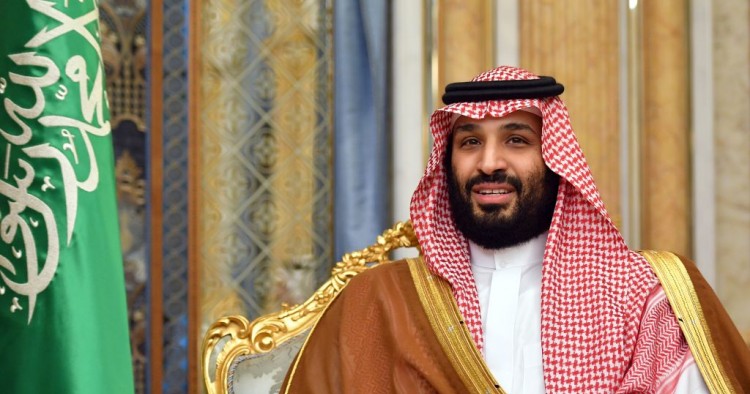As Mohammed bin Salman (MbS) approaches three years as Saudi Arabia’s crown prince and, in the eyes of many, the de facto ruler of the kingdom, he remains an enigmatic figure on the world stage. His ambitious initiatives to re-make the country, socially and economically, have been generally well-received both domestically and among international observers. But these positive efforts have been over-shadowed by decision-making that has been characterized as rash, hot-headed, authoritarian, and even dangerous to domestic, regional, and global stability. The murder of Jamal Khashoggi and the quagmire in Yemen remain the touchstones of the MbS era. But the ill-considered confrontation with Qatar, the launch of a global oil price war in the middle of a pandemic, and concerns about Saudi Arabia’s record of violating its citizens’ human rights and civil liberties further complicate considerations about his leadership.
All of these factors serve as a mere prelude to what will come next, however, as the Saudis, like the rest of the world, seek a re-set from the effects of the coronavirus pandemic, the crash and partial recovery of the global energy sector, and the broader challenges to economic recovery. While Saudi Arabia is far from alone in confronting these challenges, the fact that it was already embarked on a massive reformation of Saudi society makes it particularly vulnerable to the effects of the global crisis. Much will depend on the success of Vision 2030, the ambitious program to radically restructure the Saudi economy and society, including not only preparing young Saudis to bear much greater responsibility for building the Saudi economy but also convincing foreign investors that the kingdom is a good place to do business. And the answer to those questions will be heavily influenced by the basic judgment of what kind of country Saudi Arabia will be with MbS at the helm.
Amb. (ret.) Gerald Feierstein is MEI’s senior vice president.
ألف يوم على تعيين محمد بن سلمان.. كيف تبدو السعودية في عهده؟
مع اقتراب محمد بن سلمان من ثلاث سنوات بصفته ولياً لعهد المملكة العربية السعودية، وهو بنظر الكثيرين، الحاكم الفعلي للمملكة، إلا أنه لا يزال شخصية غامضة على المسرح العالمي.
لقيت مبادرات محمد بن سلمان الطموحة لتحديث البلاد، على المستويين الاجتماعي والاقتصادي، استقبالاً جيداً بشكل عام محلياً ومن المراقبين الدوليين.
لكن هذه الجهود الإيجابية طغت عليها عملية اتخاذ قرار وصفت بأنها متهورة، استبدادية، وحتى خطرة على الاستقرار المحلي والإقليمي والعالمي.
لا يزال مقتل جمال خاشقجي والمستنقع في اليمن يشكلان أكبر التحديات التي يواجهها محمد بن سلمان، لكن المواجهة غير المدروسة مع قطر، وإطلاق حرب أسعار النفط العالمية وسط جائحة فيروس كورونا، والمخاوف بشأن سجل المملكة العربية السعودية في انتهاك حقوق الإنسان والحريات المدنية لمواطنيها، تزيد من تعقيد الاعتبارات حول قيادته.
كل هذه العوامل بمثابة مقدمة لما سيحدث بعد ذلك، ولكن السعوديين، مثل بقية شعوب العالم، يسعون إلى التحكم بتداعيات وباء الفيروس التاجي كوفيد 19، و الإنهيار ثم الانتعاش الجزئي لقطاع الطاقة العالمي، بالإضافة إلى التحديات الكبيرة التي تحيط بالانتعاش الاقتصادي.
ومع أن المملكة العربية السعودية ليست وحدها التي تواجه مثل هذه التحديات، لكن حقيقة أنها كانت قد شرعت فعليا في عملية إصلاح واسعة النطاق للمجتمع السعودي، تجعلها عرضة بشكل خاص لآثار الأزمة العالمية.
سيعتمد كثيرا نجاح رؤية 2030، وهو البرنامج الطموح لإعادة هيكلة الاقتصاد والمجتمع السعودي بشكل جذري، ليس فقط إعداد الشباب السعودي لتحمل مسؤولية أكبر بكثير في بناء الاقتصاد، ولكن أيضًا على إقناع المستثمرين الأجانب بأن المملكة مكان جيد للقيام بأعمال تجارية.
الإجابة على هذه الأسئلة ستتأثر بنوع الدولة التي ستكون عليها المملكة العربية السعودية مع محمد بن سلمان.
الكاتب: جيرالد فيينستين، نائب رئيس معهد الشرق الأوسط
Photo by MANDEL NGAN/AFP/Getty Images
The Middle East Institute (MEI) is an independent, non-partisan, non-for-profit, educational organization. It does not engage in advocacy and its scholars’ opinions are their own. MEI welcomes financial donations, but retains sole editorial control over its work and its publications reflect only the authors’ views. For a listing of MEI donors, please click here.













